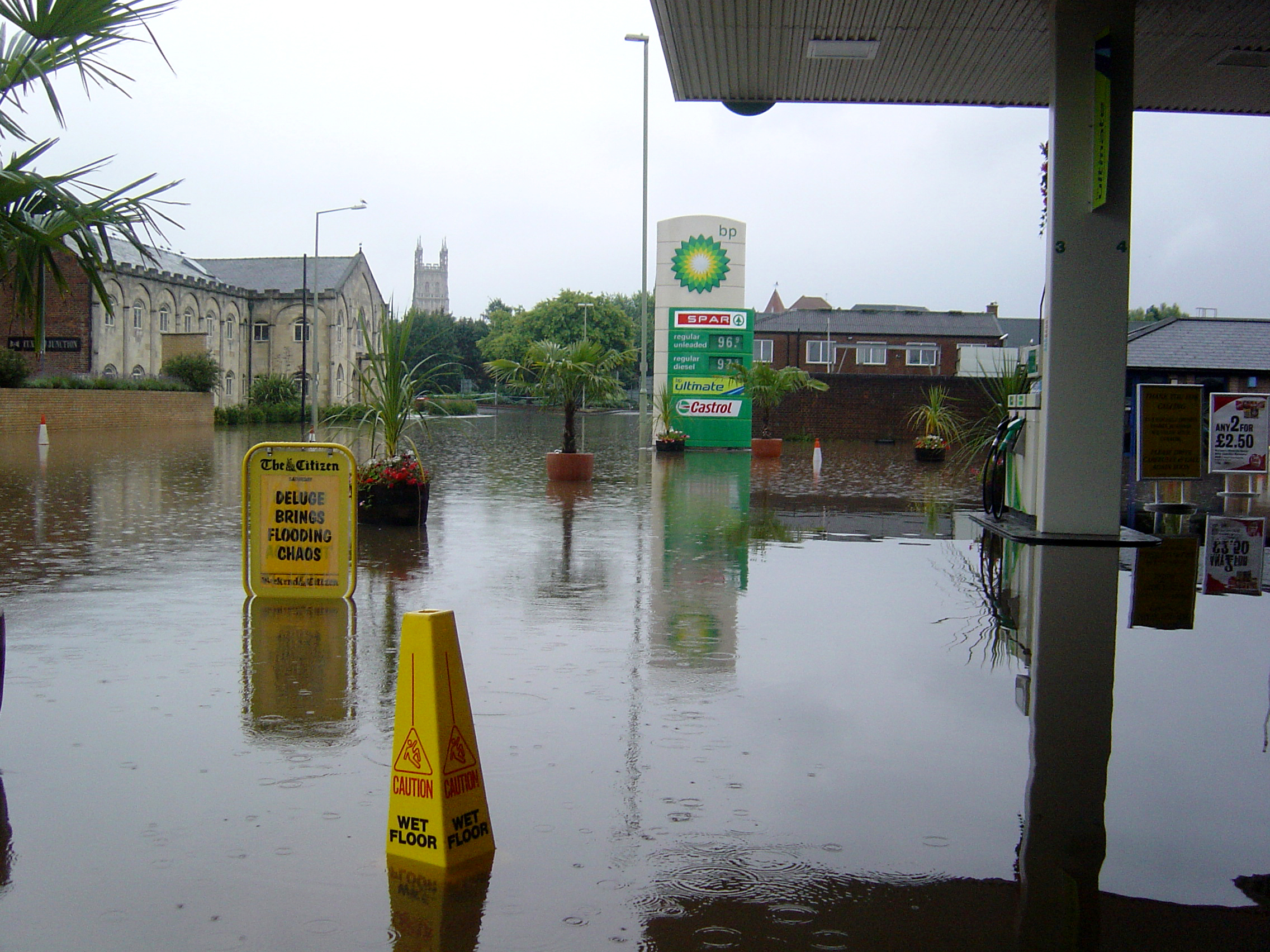While some of the worst storms and flooding in recent memory hit parts of Britain, UK climate change secretary Ed Davey was in Doha for the latest in the series of toothless United Nations Climate Change conferences. Davey is hypocritically calling for greater cuts in carbon emissions, while nothing is being done by his government in the UK. Flood barriers are being overtopped and people are suffering.
Our warmer atmosphere holds more moisture, so that climate change is already a factor making the flooding events we see today in the UK and worldwide more devastating and vast in scale. Pete Mason explains.
“Climate change: Five years ago we feared the worst. But it’s looking even worse than that” ran the headline of the New Scientist on 17 November. On every front, the last five years have met or exceeded the worst projections of the Intergovernmental Panel on Climate Change.
Extreme climate-influenced events not expected until the end of the century are happening now, as New Yorkers discovered when superstorm Sandy crashed into the state.
Emissions increasing
Meanwhile, the New Scientist notes in a major article, nothing has been done to reduce the emissions of greenhouse gases – on the contrary, coal-fired power plants are springing up like mushrooms across the planet and emissions are still increasing.
You can take your pick from seven disaster scenarios, such as the collapse of the inherently unstable West Antarctic ice sheet, resulting from a host of newly discovered mechanisms. A recent Sunday edition of the New York Times, ruminating on Hurricane Sandy, asked: “Is This the End?” Whether in 50 or 100 or 200 years, “there’s a good chance that New York City will sink beneath the sea.”
Effects for us
Ordinary people are suffering food scarcity, extreme weather and heat exhaustion. Our inability to predict the results of the feedback effects that have now been triggered, such as the release of the powerful greenhouse gas methane from frozen deposits, is giving scientists nightmares.
The New Scientist editorial appeals to US President Obama, newly re-elected and – in theory – with renewed authority to act on climate change. He declared “We want our children to live in an America… that isn’t threatened by the destructive power of a warming planet” in his re-election speech.
It’s not only the next generation that we need to worry about, the New Scientist points out – the effects of climate change are real and here now. In reality, Obama is a representative of big business, which criminally continues to fund climate change denial machinery and to profit from polluting the environment.
The tremendous 29% vote won by Socialist Alternative’s Kshama Sawant in Seattle shows that the US working class – like the British working class adversely affected by global warming and least able to flee from storms, flooding and drought – will not stand idly by while the planet burns.
Only democratic socialist planning, mobilising material and human resources on a world scale through taking the major companies responsible for global warming into public ownership, can tackle climate change.









